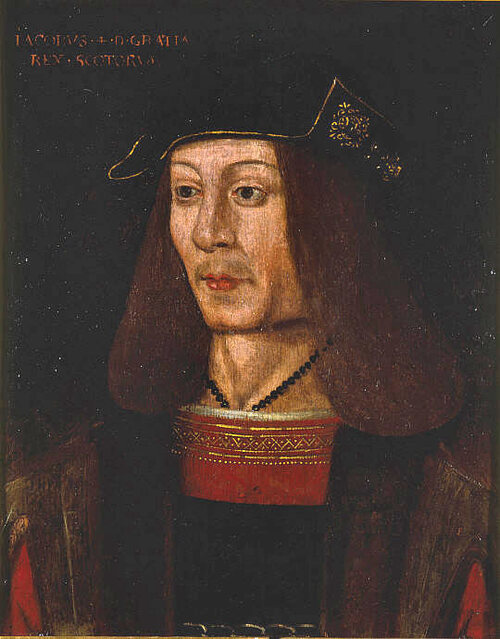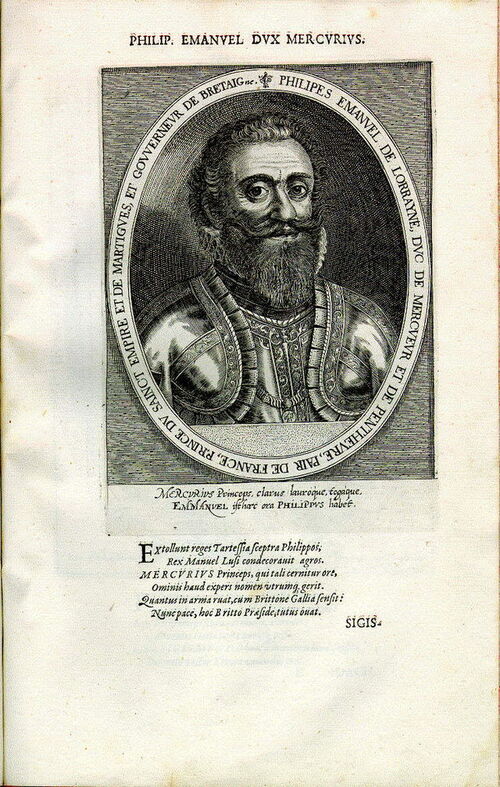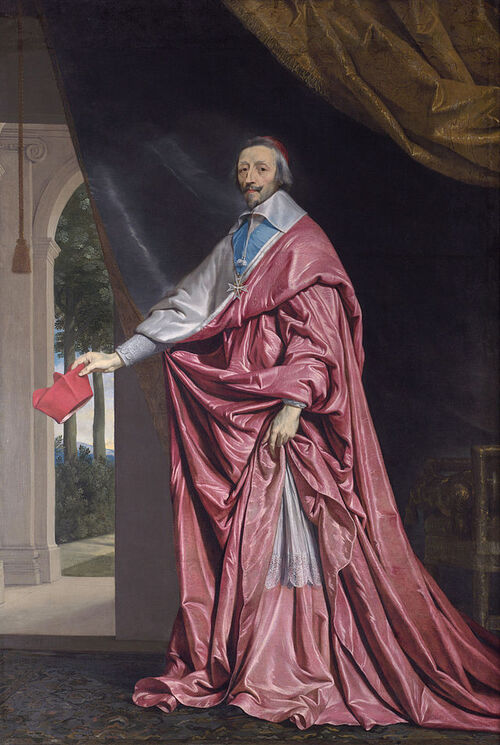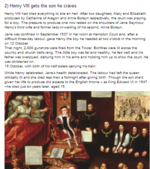-
Today in Tudor History...
9 September 1488 – Death of Francis II, Duke of Brittany

1493 – Battle of Krbava Field, a decisive defeat of Croats in Croatian struggle against the invasion by the Ottoman Empire.

1513-The Battle of Flodden or Flodden Field or occasionally Battle of Branxton was a conflict between the Kingdom of England and the Kingdom of Scotland. The battle was fought in the county of Northumberland in northern England on 9 September 1513, between an invading Scots army under King James IV and an English army commanded by the Earl of Surrey. It was an English victory. In terms of troop numbers, it was the largest battle fought between the two Kingdoms. James IV was killed in the battle, becoming the last monarch from the British Isles to suffer such a death.

THE BATTLE OF FLODDEN FIELD (Sept. 9, 1513), was fought between James IV of Scotland and the English under the Earl of Surrey. The most noteworthy circumstances of this engagement are: (1) The skilful movement by which the Earl of Surrey succeeded in crossing the river Till, and cutting off all communication between King James and Scotland. (2) The omission of the Scots to take advantage of the favourable movement for attack presented by the passage of the English army over the river. (3) The utter defeat of the English right win under Sir Edward Howard, and the loss of this success to the Scots through the misconduct of the troops of Earls Huntly and Home, who, instead of following up their victory, abandoned themselves to pillaging the luggage of both armies. (4) The prowess of the English archers, whose murderous volleys threw the Scottish right, led by Lennox and Argyle, into complete confusion. and rendered their subsequent defeat and ruinous flight a comparatively easy matter. (5) The desperate resistance against overwhelming numbers made by the Scottish centre, and the death of James IV during the heat of the contest. (6) The indecisiveness of the conflict. Notwithstanding reverses elsewhere, and the death of their king, the Scots succeeded in holding Flodden Hill during the night, and only abandoned their position at the dawn of the next day on learning the real state of affairs. Meanwhile, on the English side, the contest had so nearly resulted in defeat that Surrey was quite unable to prosecute the war with any vigour.
source:The Dictionary of English History. Sidney J. Low and F. S. Pulling
1513 – James IV of Scotland is defeated and dies in the Battle of Flodden, ending Scotland's involvement in the War of the League of Cambrai.

1513 – victims of the Battle of Flodden:
– James IV of Scotland
– George Douglas, Master of Angus
– William Douglas of Glenbervie
– William Graham, 1st Earl of Montrose, Scottish politician
– George Hepburn, Scottish bishop
– Adam Hepburn, 2nd Earl of Bothwell, Scottish politician, Lord High Admiral of Scotland
– Adam Hepburn of Craggis
– David Kennedy, 1st Earl of Cassilis, Scottish soldier
– Alexander Lauder of Blyth, Scottish politician
– Alexander Stewart, Scottish archbishop
– Matthew Stewart, 2nd Earl of Lennox, Scottish politician
1543 – Mary Stuart, at nine months old, is crowned "Queen of Scots" in the central Scottish town of Stirling.

1543-Chapuys to Charles V.
The man last despatched to advertise the King and Council of the Emperor's news has just reported that the King showed great joy at the Emperor's good success, and praised his manner of proceeding in the patents published in Cleves and Juliers, the summons to Dure and the subsequent sentence and condemnation, and was glad to be so amply advertised and to have learnt the motives which constrained the Emperor to this enterprise. The King desires the enterprise finished in order the sooner to know what remains to be done. The king of France's practice to kill the prince of Piedmont he finds strange and execrable.
Learning that at St. Malo in Brittany 150 sail are preparing and that about Denmark many are ready, the King has equipped all his ships to the number of 25, besides merchants and adventurers, and much desires those armed in Zealand and Sluys to come hither and consult for a joint enterprise. The Council are vexed that the captains of their men before Landrechies answered Scepperus a little angrily, who was sent to them from the Emperor. They (the captains) are not altogether discreet, for they have dared to write to the King that the Emperor's men showed themselves cowards, afraid to seek the enemies, and that had it lain with them they would have already gained all. Such dealings must not cause astonishment. It is their nature. Does not think that they will withdraw before the time prefixed, and, even if the King had thought of revoking them, the Emperor's success would change his mind. The Princess has been very ill of a colic, and no medicine has more assisted her cure than the good news of the Emperor. London, 9 Sept. 1543.
1561 – The ultimately unsuccessful Colloquy at Poissy opens in an effort to reconcile French Catholics and Protestants.
The Colloquy at Poissy was a religious conference which took place in Poissy, France, in 1561. Its object was to effect a reconciliation between the Catholics and Protestants (Huguenots) of France.The conference was opened on 9 September in the refectory of the convent of Poissy, the French king (aged 11) himself being present. It broke up inconclusively a month later, on 9 October, by which point the divide between the doctrines appeared irreconcilable.
1583 –Death of Humphrey Gilbert, English explorer

1558 – Birth of Philippe Emmanuel, Duke of Mercœur

1585 – Birth of Cardinal Richelieu, French clergyman

1596 – Death of Anna Jagiellon, Polish queen

source:wikipedia,http://www.british-history.ac.uk/,The Dictionary of English History.
5 royal births that rocked a nation.Read more:http://www.historyextra.com/feature/sex-and-love/5-royal-births-rocked-nation

